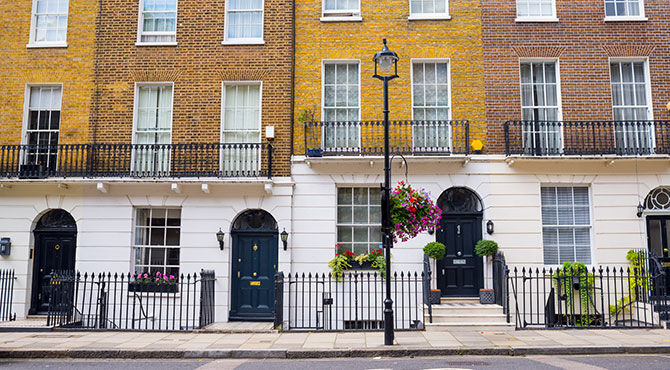House price rises surge in North, slow in South
A clear imbalance between supply and demand for housing explains why house price growth in southern cities is at its lowest level since 2012. Which cities had the highest level of growth - and the lowest?

 30 July 2019
30 July 2019The London housing market is recalibrating
Richard Donnell, research and insight director at Zoopla, said: "There is a clear imbalance between supply and demand for housing across southern cities and this explains why house price growth in these cities is at its lowest level since 2012."But he added, "In our view, the London market is coming to the end of a three-year re-pricing process. There has been an improvement in the ratio of sales to new supply thanks to a small, but important, increase in sales agreed and less new supply."Prices are firming on the back of more realistic pricing of new supply which is much closer to what buyers are prepared to pay."City living: home prices are far more stable in UK property hotspots
Marc von Grundherr, director at lettings and estate agents Benham and Reeves, commented: “City living remains extremely desirable and therefore conditions in these property hotspots are far more stable than other areas of the market and continue to see prices climb as a result."The cities to have benefited from larger levels of buyer demand in the past are, of course, going to take longer to recover as this heightened demand has pushed up prices and it makes sense that they are now seeing more stock then sales as buyers wait for a natural adjustment to occur. "It looks as if London is finally turning a corner where city house price growth is concerned with the previous price rot seen now in reverse. Home sellers in the capital have been waiting patiently for the tide to turn as a lack of market activity has seen sold prices tumble. However, as the scales of properties sold to new stock now start to tip in favour of the seller, we should see price growth start to accelerate.”UK property: high buyer demand in the North
Shepherd Ncube, founder and CEO of Springbok Properties, added, “A bit of a mixed bag across the current market landscape but a positive one for the large part, with city house price growth continuing to shun wider market uncertainty to register yet more positive movement. "It’s promising to see such strength being registered across cities in the North, who have otherwise stood in the shadow of the capital for far too long. "These markets are enjoying much higher levels of buyer demand at present due to more realistic price expectations and the rate of new stock entering the market is failing to meet this appetite."Subscribe to Relocate Extra, our monthly newsletter, to get all the latest international assignments and global mobility news.Relocate’s new Global Mobility Toolkit provides free information, practical advice and support for HR, global mobility managers and global teams operating overseas.
 Access hundreds of global services and suppliers in our Online Directory
Access hundreds of global services and suppliers in our Online Directory
©2026 Re:locate magazine, published by Profile Locations, Spray Hill, Hastings Road, Lamberhurst, Kent TN3 8JB. All rights reserved. This publication (or any part thereof) may not be reproduced in any form without the prior written permission of Profile Locations. Profile Locations accepts no liability for the accuracy of the contents or any opinions expressed herein.






























